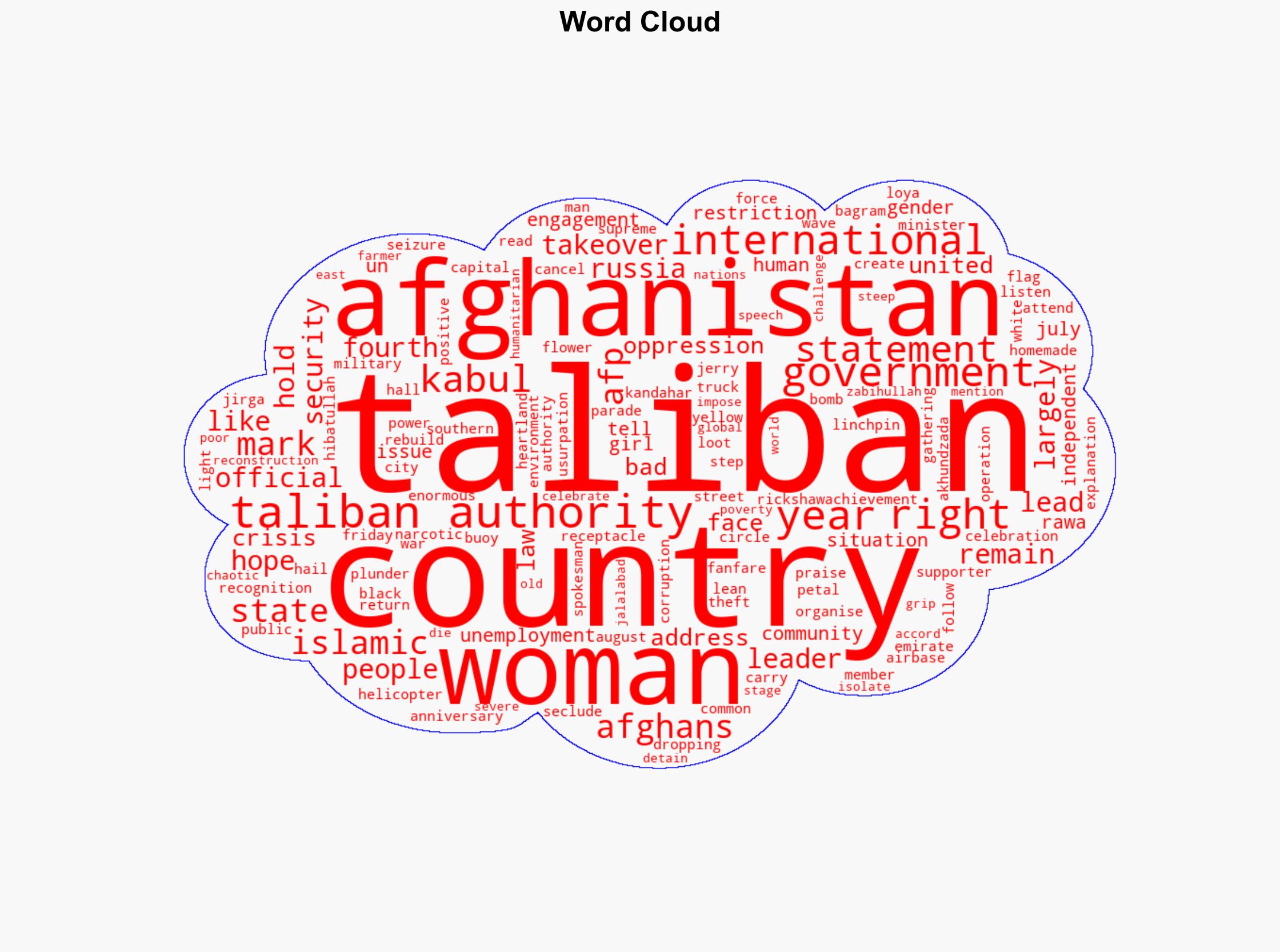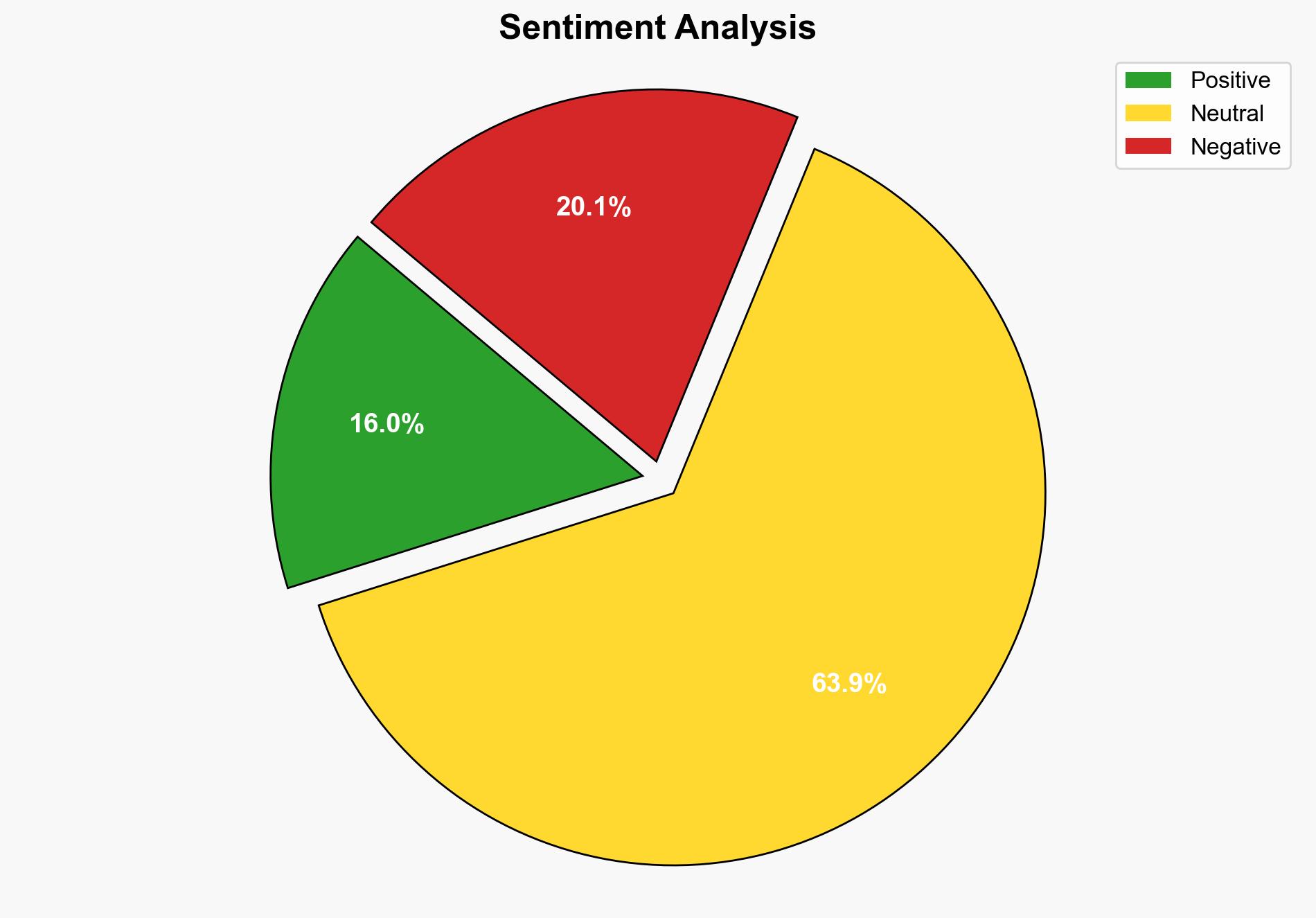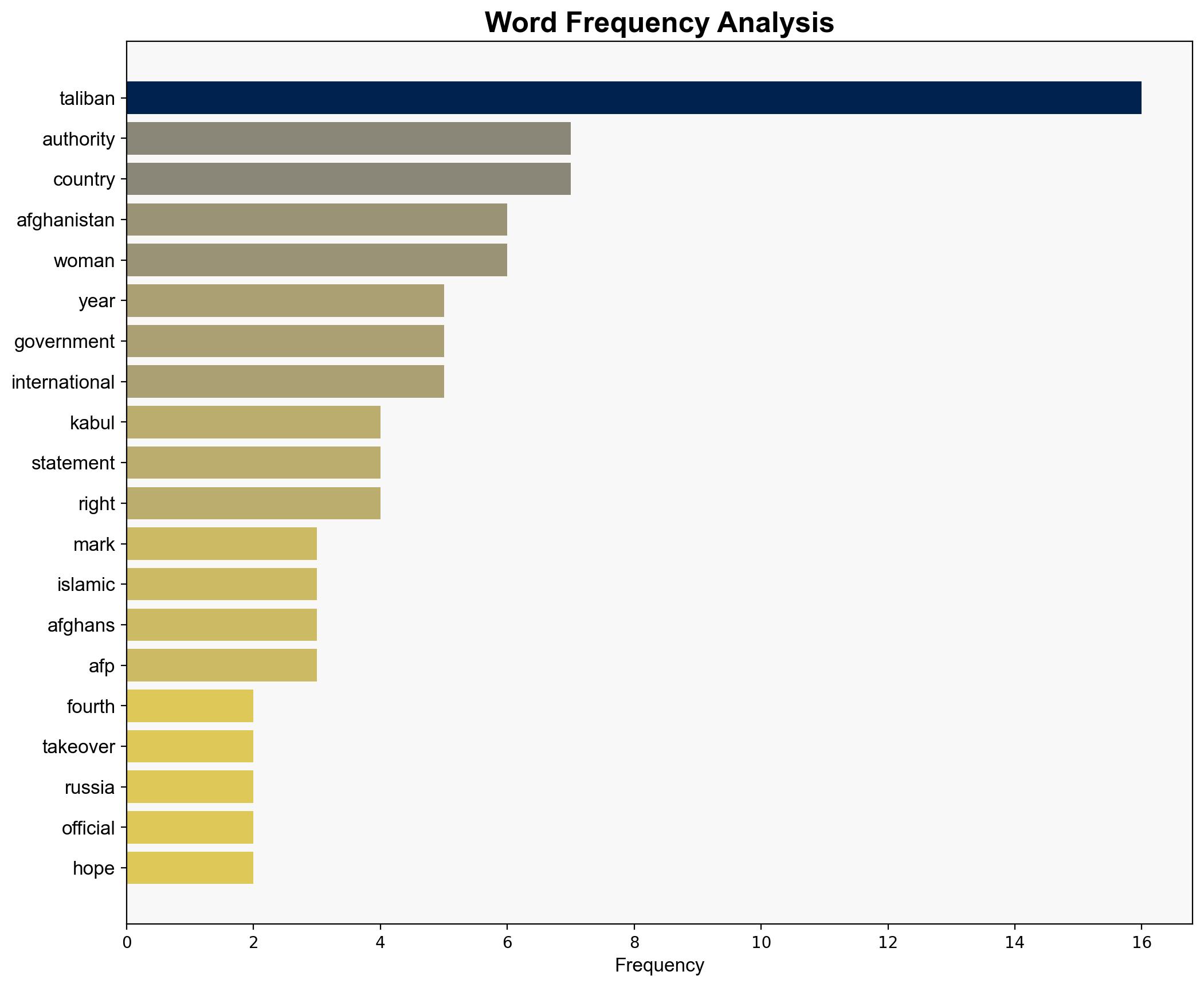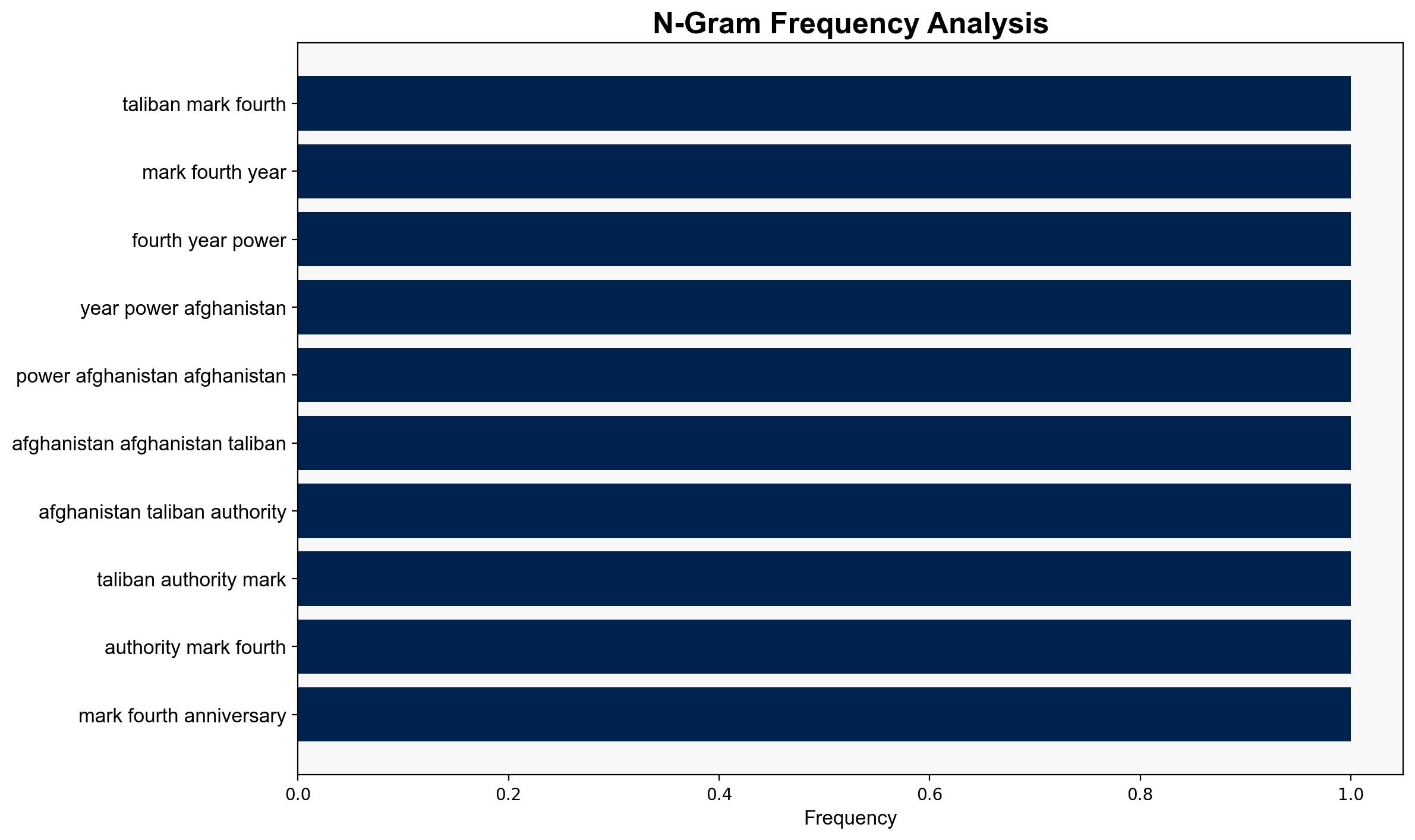Taliban Mark Fourth Year In Power In Afghanistan – International Business Times
Published on: 2025-08-15
Intelligence Report: Taliban Mark Fourth Year In Power In Afghanistan – International Business Times
1. BLUF (Bottom Line Up Front)
The Taliban’s fourth anniversary in power highlights a complex geopolitical landscape with mixed international recognition and internal challenges. The most supported hypothesis suggests that the Taliban will continue to consolidate power internally while facing limited international legitimacy. Confidence level: Moderate. Recommended action: Engage in diplomatic efforts to address humanitarian issues and monitor regional security dynamics.
2. Competing Hypotheses
Hypothesis 1: The Taliban will achieve broader international recognition and stabilize Afghanistan through diplomatic engagement and internal reforms.
Hypothesis 2: The Taliban will remain largely isolated internationally due to their strict governance and human rights violations, leading to internal instability and economic challenges.
Using ACH 2.0, Hypothesis 2 is better supported due to the Taliban’s continued enforcement of strict Islamic laws, lack of significant reforms, and ongoing international condemnation, particularly concerning women’s rights.
3. Key Assumptions and Red Flags
Assumptions: Hypothesis 1 assumes the Taliban will moderate policies to gain international acceptance. Hypothesis 2 assumes continued international isolation due to human rights issues.
Red Flags: The Taliban’s engagement with countries like Russia and China may not translate into broader international acceptance. Reports of internal opposition and economic fragility could indicate potential instability.
4. Implications and Strategic Risks
The Taliban’s governance could lead to increased regional instability, affecting migration and security. Economic challenges may exacerbate humanitarian crises, potentially leading to increased radicalization. The geopolitical alignment with Russia and China could shift regional power dynamics, impacting U.S. and European interests.
5. Recommendations and Outlook
- Engage in multilateral diplomatic efforts to address humanitarian concerns and encourage moderate governance reforms.
- Monitor regional security developments, particularly in relation to Russia and China’s influence.
- Scenario Projections:
- Best Case: Taliban implements moderate reforms, leading to improved international relations and economic stability.
- Worst Case: Continued isolation leads to economic collapse and increased regional instability.
- Most Likely: Limited international engagement with ongoing internal challenges and regional security concerns.
6. Key Individuals and Entities
Hibatullah Akhundzada, Zabihullah (farmer from Jalalabad), International Crisis Group analyst Ibraheem Bahiss, Revolutionary Association of the Women of Afghanistan (RAWA).
7. Thematic Tags
national security threats, geopolitical dynamics, human rights, regional stability





